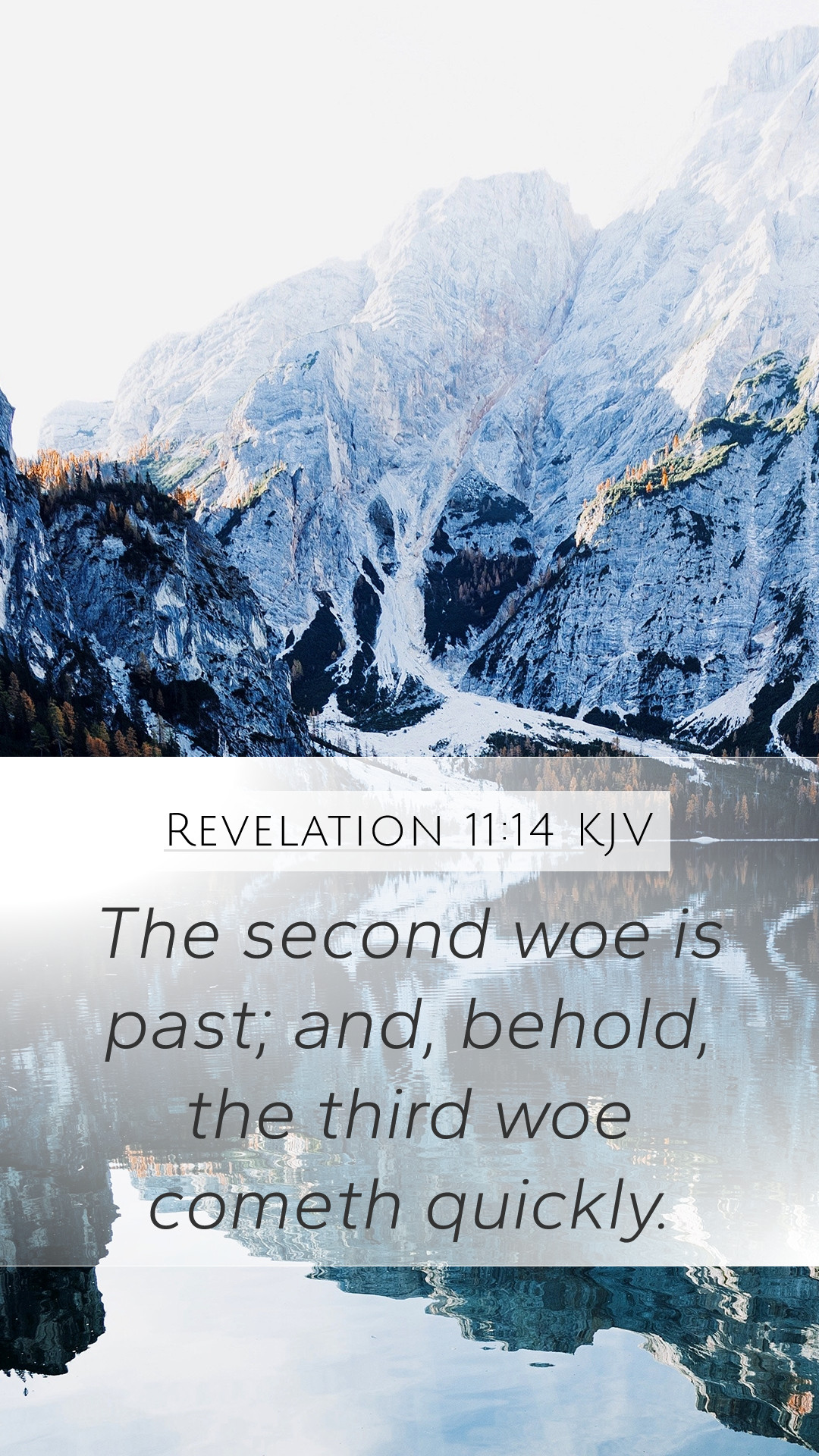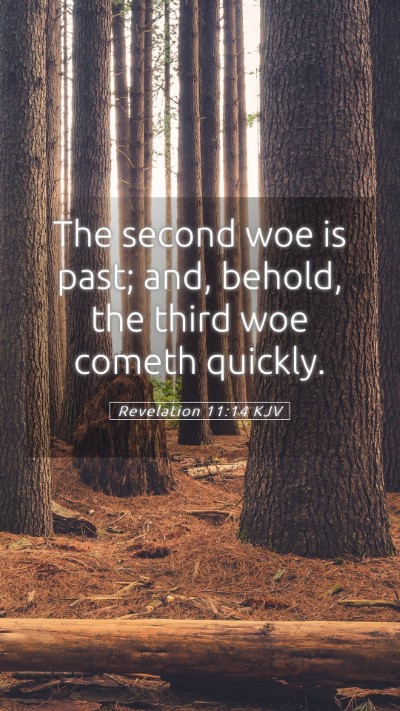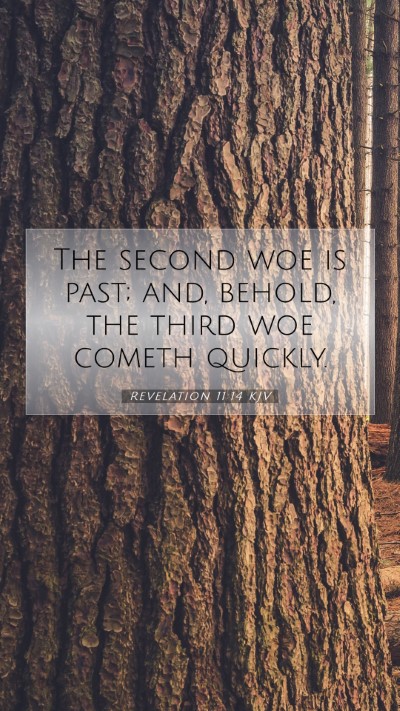Understanding Revelation 11:14: A Detailed Bible Verse Explanation
Bible Verse: Revelation 11:14 - "The second woe is past, and behold, the third woe cometh quickly."
Revelation 11:14 serves as a pivotal moment in the Book of Revelation, marking the transition from the second series of judgments to the unfolding of the final events of the world's history. This verse encapsulates the urgency and the climactic nature of the prophetic narrative. In this summary, we will explore the meaning, interpretations, and implications of this verse through various biblical commentaries.
Summary of Bible Verse Meanings
Multiple public domain commentaries provide significant insights into the interpretation of Revelation 11:14:
- Matthew Henry's Commentary: Matthew Henry emphasizes the importance of recognizing the "woes" as part of God's judgment on a sinful world. He notes that the second woe, associated with the sixth trumpet, signifies a period of tribulation that has passed. The announcement of a third woe highlights the continuation of divine judgment but also the hope for ultimate deliverance through Christ's return.
- Albert Barnes' Notes: Albert Barnes points out that the term "woe" signifies more pronounced judgments that befall humanity, especially those who do not heed the warnings of God's impending wrath. He interprets this verse within the grand narrative of Revelation, portraying it as a transition to the final and most severe judgments to come—namely, the third woe that "cometh quickly". Barnes stresses the need for readiness among believers as the message foreshadows a crucial and swift divine action.
- Adam Clarke's Commentary: Adam Clarke provides a historical and prophetic interpretation of this verse, connecting it to the larger apocalyptic context. He suggests that the "second woe" relates to the judgment that accompanied the Ottomans' invasion, which had significant implications for the church and the faithful. Clarke frames the verse with a sense of urgency, indicating that the events following this point are both imminent and of great importance for believers and non-believers alike.
Diving Deeper: Theological Implications
The theological implications derived from Revelation 11:14 are profound. It signals not just the continuation of woes but also the promise of eventual restoration. The reference to the “third woe” serves as a reminder of the final events that will culminate in God’s ultimate victory over evil:
- The events leading to the third woe are tied to the eschatological hope of the church, reminding believers of the significance of perseverance and faith during trials.
- This verse serves as a sober warning about the reality of God’s judgment, encouraging individuals to reflect on their spiritual state and the urgency of repentance.
- It points to the hope that follows judgment, emphasizing that although tribulations come, they are layered with divine purpose and lead to fulfillment in God's plan.
Cross References for Deeper Understanding
To gain a more profound understanding of Revelation 11:14 and its themes, consider studying the following related Bible verses:
- Revelation 8:13: This verse introduces the concept of woes, setting the stage for the coming judgments.
- Revelation 9:12: This verse marks the conclusion of the first woe, leading to the discussions of subsequent tribulations.
- Revelation 12:12: This verse echoes the urgency of the current situation, explaining the wrathful nature of the enemy.
Applying Revelation 11:14 to Daily Life
Understanding Revelation 11:14 is invaluable for contemporary believers. Here are a few applications:
- Recognizing the urgency in both personal and communal faith journeys—believers are called to remain vigilant.
- Using this verse as a motivation for evangelism, urging others to understand the seriousness of times to come.
- Encouraging reflection on one’s spiritual state and commitment, especially in light of divine timelines and impending events.
Conclusion: A Call to Vigilance and Faith
Revelation 11:14 signals a crucial point in prophetic scripture, combining warnings, hope, and the call for readiness in the face of divine judgment. As believers engage with this verse, they are reminded of the importance of understanding scripture, remaining steadfast in faith, and being aware of the spiritual ramifications of their actions in light of the coming third woe.
In Summary: The verse encapsulates a pivotal transition in Revelation, encourages readiness for judgments while underscoring theological themes of urgency, hope, and the significance of God’s ultimate plan.


